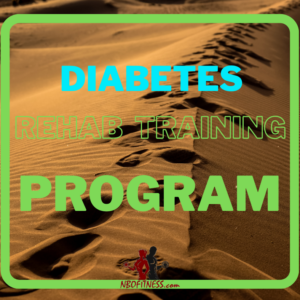
Cancer is a group of diseases characterized by the uncontrolled growth and spread of abnormal cells in the body. These cells can invade nearby tissues and organs, disrupting normal bodily functions. While cancer can have genetic and environmental causes, lifestyle factors play a significant role in its development. Overweight and obesity, poor dietary habits, lack of physical activity, and other unhealthy behaviors can contribute to the initiation and progression of cancer through various mechanisms such as chronic inflammation, insulin resistance, hormonal imbalance and more.
Reviewed by Evans Mwaniki, PT
Introduction
Cancer is a complex and multifaceted disease characterized by the abnormal growth and multiplication of cells. While various factors contribute to the development of cancer, lifestyle choices such as being overweight, obesity, poor dietary habits, and lack of exercise can significantly increase the risk. At Nairobi Fitness Consulting, our team is committed to empowering individuals to adopt healthy lifestyles and reduce their risk of cancer through personalized interventions and support.
What is Cancer?
Cancer is a group of diseases characterized by the uncontrolled growth and spread of abnormal cells in the body. These cells can invade nearby tissues and organs, disrupting normal bodily functions. Cancer can occur in any part of the body and may arise from different types of cells, each with its own characteristics and behavior.
Causes of Cancer
While cancer can have genetic and environmental causes, lifestyle factors play a significant role in its development. Overweight and obesity, poor dietary habits, lack of physical activity, and other unhealthy behaviors can contribute to the initiation and progression of cancer through various mechanisms:
Chronic Inflammation: Obesity and poor diet are associated with chronic low-grade inflammation, which creates a pro-inflammatory environment that promotes cancer development and progression.
Insulin Resistance and Hormonal Imbalances: Overweight and obesity are linked to insulin resistance and altered hormone levels, such as elevated insulin and estrogen, which can fuel the growth of cancer cells.
Increased Cell Proliferation: Adipose tissue in overweight and obese individuals produces hormones and growth factors that stimulate cell proliferation, increasing the risk of cancer initiation and progression.
Altered Immune Function: Obesity and unhealthy lifestyle choices can impair immune function, reducing the body’s ability to identify and eliminate cancer cells, leading to tumor formation and growth.
Insulin receptors on tumor cells play a significant role in tumor growth, progression, and metabolism. These receptors are a type of cell surface receptor that binds to insulin, a hormone primarily known for its role in glucose metabolism. While insulin receptors are typically found on various cell types in the body, including muscle, fat, and liver cells, tumor cells can also express these receptors, and their presence can influence cancer biology in several ways:
Proliferation and Growth: Insulin signaling through its receptors on tumor cells can stimulate cell proliferation and growth. Activation of the insulin receptor pathway can trigger downstream signaling cascades, such as the PI3K-Akt pathway, which promotes cell survival and growth. In tumors, dysregulated insulin signaling may contribute to uncontrolled cell proliferation, a hallmark of cancer.
Metabolic Rewiring: Insulin receptors on tumor cells can alter cellular metabolism to support the increased energy demands of rapidly dividing cancer cells. Insulin signaling can enhance glucose uptake and metabolism, providing fuel for tumor growth. Moreover, insulin can stimulate lipogenesis and protein synthesis, contributing to the biosynthesis of macromolecules necessary for cell proliferation.
Angiogenesis: Insulin signaling may also play a role in angiogenesis, the process of new blood vessel formation that is essential for tumor growth and metastasis. Insulin receptors on tumor cells can promote the secretion of angiogenic factors, such as vascular endothelial growth factor (VEGF), which stimulate the formation of blood vessels to supply nutrients and oxygen to the growing tumor.
Invasion and Metastasis: Insulin signaling pathways can influence the invasive and metastatic potential of tumor cells. Activation of insulin receptors may enhance the expression of matrix metalloproteinases (MMPs), enzymes involved in extracellular matrix degradation, facilitating tumor cell invasion into surrounding tissues and dissemination to distant sites.
Resistance to Therapy: Insulin receptor signaling has been implicated in mediating resistance to cancer therapies, including chemotherapy and targeted therapies. Tumor cells with heightened insulin receptor activity may exhibit increased survival and resistance to cell death induced by anticancer treatments.
Signs and Symptoms
The signs and symptoms of cancer vary depending on the type and location of the tumor. Common signs may include:
- Persistent fatigue
- Unexplained weight loss
- Changes in bowel or bladder habits
- Persistent cough or hoarseness
- Skin changes, such as new moles or lesions
- Unexplained pain or discomfort
Early detection and prompt medical evaluation are crucial for diagnosing cancer and initiating appropriate treatment.
Treatment Options
Cancer treatment depends on various factors, including the type and stage of cancer, as well as the individual’s overall health and preferences. Treatment modalities may include surgery, chemotherapy, radiation therapy, targeted therapy, immunotherapy, or a combination of these approaches. Additionally, lifestyle modifications, such as dietary changes, exercise, and stress management, can complement conventional cancer treatments and support overall well-being.
How Nairobi Fitness Consulting Can Help
At Nairobi Fitness Consulting, we take a holistic approach to cancer prevention and management, addressing the underlying lifestyle factors that contribute to cancer risk. Our multidisciplinary team of physiotherapists, nutritionists, and psychologists collaborates to provide personalized interventions tailored to each client’s needs:
Physiotherapy: Our physiotherapists design customized exercise programs aimed at promoting weight management, improving physical fitness, and reducing the risk of obesity-related cancers. Regular exercise can also enhance immune function and improve overall well-being during cancer treatment and survivorship.
Nutrition Counseling: Our nutritionists offer evidence-based dietary guidance to optimize nutrition and support immune function, helping clients adopt healthy eating habits that reduce cancer risk and support cancer treatment outcomes.
Psychological Support: A cancer diagnosis can be emotionally challenging, and our psychologists provide counseling and support to help clients cope with stress, anxiety, and other psychosocial factors associated with cancer.
Conclusion
By addressing overweight, obesity, poor dietary habits, and lack of exercise, individuals can reduce their risk of cancer and improve their overall health and well-being. Through personalized interventions and support from our team at Nairobi Fitness Consulting, clients can take proactive steps to prevent the onset and reverse the effects of cancer. Contact us today to learn more about how we can support you on your journey to a healthier, cancer-free life.
Our concierge (at home) team of obesomedical personnel; physiotherapists, nutritionists and psychologists, allow you to participate in personalized therapeutic exercises, nutrition and psychological counseling sessions from the comfort of your own home at the time of your choosing, making it convenient for you and your family. Feel free to email us at [email protected] or call us via +254-725-251930 to book an appointment with us at Nairobi Fitness Consulting for your curated and guided prescription and start living your best life.










